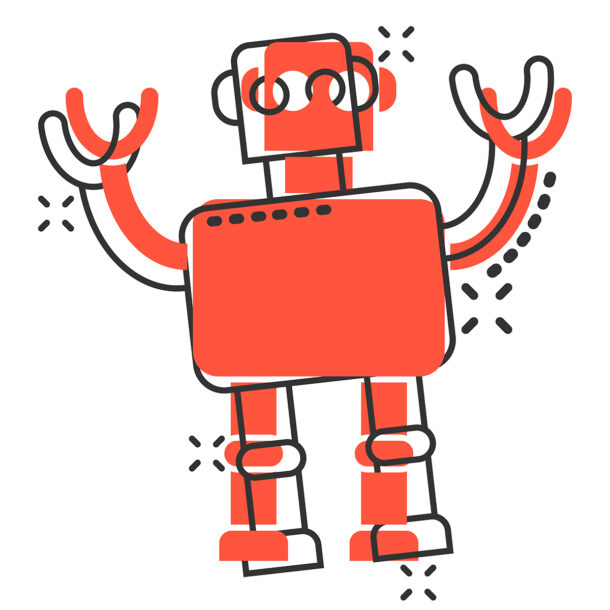I. Introduction
Artificial Intelligence (AI) powered chatbots are revolutionizing the way businesses interact with their customers. These advanced digital assistants are capable of understanding and responding to human language, providing a more personalized and efficient customer service experience. But what exactly is an AI powered chatbot and how does it work? Let’s delve into the fascinating world of AI chatbots.
II. Understanding AI Chatbots
An AI chatbot is a software application that uses artificial intelligence to understand and respond to human language. Unlike traditional chatbots that follow pre-programmed scripts, AI chatbots use Natural Language Processing (NLP) to interpret and respond to user queries in a more human-like manner. This allows them to:
- Understand and interpret complex requests
- Learn from past interactions and improve over time
- Provide personalized responses based on user data
AI chatbots are becoming increasingly popular in various industries, from customer service to marketing, due to their ability to provide instant, personalized responses and operate 24/7.
III. Benefits of AI Chatbots
Improved Customer Service
AI chatbots are a game-changer in the realm of customer service. They are capable of providing instant responses to customer queries, thereby significantly reducing wait times. This immediate response capability is crucial in today’s fast-paced digital world where customers expect quick and efficient service. Moreover, AI chatbots are not limited by human constraints such as working hours or fatigue. They can provide consistent service 24/7, ensuring that customer queries are addressed promptly, regardless of the time of day. This level of service can greatly enhance customer satisfaction and foster loyalty towards your brand.
Increased Efficiency
Efficiency is another key benefit of AI chatbots. By automating routine queries, AI chatbots can handle a large volume of customer interactions, freeing up human agents to focus on more complex issues that require a human touch. This not only improves the efficiency of your customer service operations but also allows your human agents to work more effectively. Furthermore, AI chatbots can handle multiple customer interactions simultaneously, something that would be impossible for a human agent. This ability to multitask can greatly increase the efficiency of your customer service operations.
24/7 Availability
In our globalized world, businesses often have customers from different time zones. This can pose a challenge for customer service operations. However, AI chatbots can operate round the clock, ensuring that customers receive assistance whenever they need it, regardless of their geographical location or time zone. This 24/7 availability can greatly enhance the customer experience and can give your business a competitive edge. It also means that your business can continue to engage with customers and generate leads even outside of traditional business hours.
Cost Savings
Implementing an AI chatbot can lead to significant cost savings. By automating routine customer interactions, AI chatbots can reduce the need for a large customer service team, thereby reducing labor costs. Furthermore, AI chatbots can handle a large volume of customer interactions, reducing the need for additional resources to manage high customer volumes. Additionally, the efficiency gains from using AI chatbots can lead to further cost savings. For example, by reducing the time spent on handling customer queries, your business can save on operational costs.
IV. Implementing AI Chatbots
Implementing an AI chatbot involves several steps:
- Define the Purpose: Determine what tasks the chatbot will perform and what problems it will solve.
- Choose the Right Platform: Select a chatbot platform that suits your business needs and budget.
- Train the Chatbot: Use existing customer interaction data to train the chatbot.
- Test and Refine: Regularly test the chatbot and use customer feedback to make improvements.
V. AI Chatbots vs. Rule-Based Chatbots
While both AI and rule-based chatbots can automate customer interactions, there are key differences:
- AI Chatbots: These chatbots use AI and NLP to understand and respond to user queries. They can handle complex interactions and learn from past interactions.
- Rule-Based Chatbots: These chatbots follow pre-defined rules and can only respond to specific commands. They are simpler to implement but offer less flexibility.
VI. Future of AI Chatbots
The future of AI chatbots is a captivating topic that is increasingly gaining attention in the digital technology landscape. As we continue to advance in the realm of artificial intelligence, the potential of AI chatbots is becoming more evident. They are not just tools for ordering pizzas or answering simple questions anymore. They are evolving into sophisticated digital assistants that can guide users through complex processes, analyze sentiments, and even predict user preferences.
AI chatbots are constantly learning and adapting. They are designed to understand and interpret human language through a process known as natural language processing (NLP). This allows them to respond to different patterns and new situations effectively. As they continue to learn from their interactions, their ability to provide relevant and personalized responses improves.
One of the most exciting prospects for the future of AI chatbots is their potential to revolutionize customer service. With their ability to provide instant responses and handle a large volume of queries, AI chatbots can greatly enhance the customer experience. They can provide personalized service, understand customer sentiments, and even predict customer behavior. This can lead to more effective customer engagement and higher customer satisfaction.
Another promising trend is the integration of AI chatbots with other technologies. For instance, the integration of AI chatbots with CRM software can provide businesses with valuable insights into customer behavior. This can help businesses to tailor their marketing strategies and provide more personalized service. Furthermore, the integration of AI chatbots with social media platforms can enable businesses to engage with their customers in a more interactive and engaging manner.
Despite the promising future, there are still challenges that need to be addressed. One of the main challenges is the development of AI chatbots that can understand and interpret human language accurately. This requires significant advancements in NLP and machine learning technologies. However, with the rapid progress in AI research and development, it is likely that these challenges will be overcome in the near future.
In conclusion, the future of AI chatbots looks promising. They are set to play a crucial role in various domains, including customer service, marketing, and social media engagement. As AI technology continues to advance, we can expect AI chatbots to become more sophisticated and effective, providing businesses with a powerful tool to engage with their customers and enhance their digital experience.
FAQs
- What is an AI based chatbot? An AI based chatbot is a software application that uses artificial intelligence to understand and respond to human language.
- How do AI-powered chatbots work? AI-powered chatbots use Natural Language Processing (NLP) to understand and interpret human language. They learn from past interactions and use this knowledge to provide more accurate and personalized responses over time.
- What is the difference between a chatbot and an AI chatbot? The main difference between a chatbot and an AI chatbot is that while a regular chatbot follows pre-programmed scripts, an AI chatbot uses artificial intelligence and NLP to understand and respond to user queries in a more human-like manner.
- How can AI chatbots benefit my business? AI chatbots can improve customer service by providing instant, personalized responses. They can operate 24/7, handle routine queries, and free up human agents to focus on more complex issues. This can lead to increased customer satisfaction, efficiency, and cost savings.
VII. Conclusion
AI chatbots represent a significant advancement in customer service technology. By providing instant, personalized responses, they can improve customer satisfaction, increase efficiency, and reduce costs. If you’re interested in harnessing the power of AI chatbots for your business, book a demo today.
If you’d like to find out more about AI bots, check out our webpage here.


